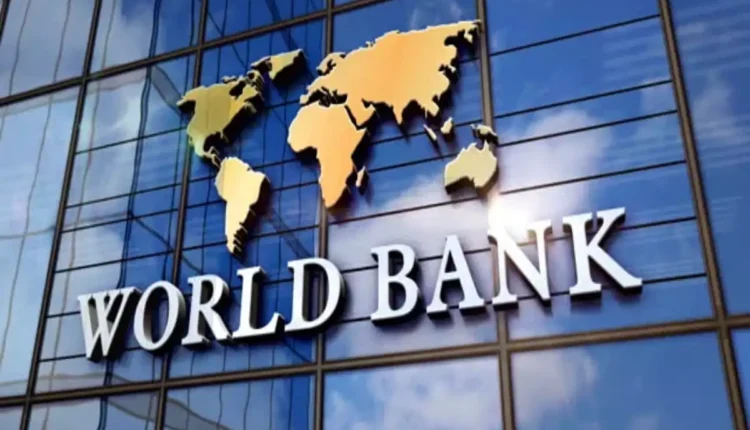The World Bank has reiterated its commitment to ensuring that persons with disabilities have equitable access to Water, Sanitation and Hygiene (WASH) services in Nigeria through its $700 million Sustainable Urban and Rural Water Supply, Sanitation and Hygiene (SURWASH) programme.
This reaffirmation came during a roundtable on disability inclusion in WASH held on Friday in Abuja. The event brought together key stakeholders, including civil society organisations and representatives of persons with disabilities, to assess progress, identify challenges, and propose inclusive solutions under the SURWASH implementation framework.
Ms Awa Diagne, Task Team Lead for the SURWASH programme at the World Bank, emphasized that SURWASH is a long-term, performance-based initiative aimed at strengthening Nigeria’s national delivery systems.
“SURWASH is not a project, it is a programme that aims to strengthen national systems to deliver WASH services to everyone, with special consideration for people living with disabilities,” she said.
Diagne noted that the programme integrates disability inclusion into its financing model and supports the development of policies and guidelines tailored to different contexts to enhance service delivery.
“We are not just financing infrastructure; we are helping states design policies that embed inclusion and resilience from the start,” she stated, stressing the importance of inclusive design that goes beyond the physical aspects.
“Accessibility must go beyond ramps and handrails, it must reflect the full spectrum of disabilities, mobility, visual, hearing, cognitive, and must begin with meaningful engagement of stakeholders from the outset,” she added.
She highlighted that disability inclusion should be embedded in all stages of design, planning, and execution, rather than being treated as a secondary concern. Diagne also urged state-level implementers to ensure that the insights from the roundtable are translated into actionable steps in their respective regions.
“We need to be more conscious of who we consult, and what we mean by disability inclusion,” she said, while calling for stronger monitoring, evaluation, and accountability mechanisms.
Also speaking at the event, Cindy Ikeaka, a Senior Social Development Specialist at the World Bank, raised concerns about the daily challenges faced by millions of Nigerians with disabilities in accessing basic services.
She cited data showing that more than 25 million Nigerians live with disabilities, many of whom are excluded from public services due to inaccessible infrastructure and weak enforcement of inclusion laws.
“We have children with disabilities who cannot go to school simply because the buildings are not designed to accommodate them,” Ikeaka said.
She called for full enforcement of the Discrimination Against Persons with Disabilities (Prohibition) Act, which was passed in 2019.
“While some states have domesticated the law, enforcement remains inconsistent, it is not enough to pass a law, there must be mechanisms to ensure it is enforced,” she added.
Ikeaka also referenced other World Bank-led initiatives, such as the Adolescent Girls Initiative for Learning and Empowerment (AGILE), which promotes inclusive education for girls, including those with disabilities.
“A person with a disability understands the barriers better than someone without one. If we want to ensure accessibility in schools, water points, or health centres, we must engage those directly affected.
“Inclusion is not optional but essential to achieving sustainable development and equitable service delivery,” she said.
Mr Abdulhamid Gwaram, National Programme Coordinator for SURWASH, stressed that disability inclusion is not just a development goal but also a legal obligation under Nigerian law.
“Disability inclusion is not just a moral imperative, it is enshrined in Nigerian law,” he stated, referencing the 2019 disability rights legislation.
Gwaram acknowledged that inadequate planning and infrastructure design continue to hinder access to water and sanitation for persons with disabilities, but expressed optimism that the SURWASH framework could address these gaps through inclusive principles.
“We now have partnerships with key stakeholders like the National Commission for Persons with Disabilities, but we must take these conversations to the states and local governments to ensure real impact,” he said.
Also contributing, Mr Tony Agwuna, Monitoring and Evaluation Officer for the programme, advocated for greater integration of disability-inclusive approaches across all Ministries, Departments, and Agencies (MDAs).
He emphasized that inclusive WASH must involve participation, non-discrimination, gender sensitivity, accessibility, staff training, and robust monitoring and evaluation systems.
“All MDAs should institutionalise the needs of people with disabilities in their programmes,” Agwuna said.
“Inclusive WASH is a human rights issue and is central to achieving the Sustainable Development Goals and the UN Convention on the Rights of Persons with Disabilities.”
The SURWASH programme is currently being implemented in seven states: Delta, Ekiti, Gombe, Imo, Kaduna, Plateau, and Katsina.


